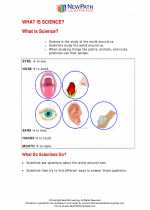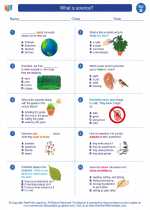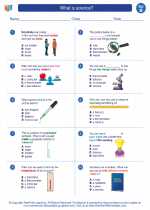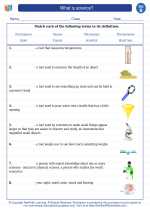Design in Science
Design is an important concept in science that involves creating, planning, and constructing solutions to problems or challenges. In the field of science, design often refers to the process of creating experiments, investigations, or technologies to explore and understand the natural world.
Understanding Design in Science
When scientists design experiments, they carefully plan and organize the steps to test a hypothesis or answer a research question. This includes identifying variables, selecting appropriate materials and tools, and outlining procedures to collect data and analyze results.
Types of Design in Science
There are different types of design in science, including:
- Experimental Design: Involves planning and conducting controlled experiments to test a hypothesis and determine cause-and-effect relationships.
- Observational Design: Involves designing studies to observe and record natural phenomena or behavior without manipulating variables.
- Technological Design: Involves creating new tools, devices, or systems to solve practical problems or improve existing processes.
Design Process Steps
The design process in science often follows a series of steps:
- Identify the Problem: Clearly define the problem or question that the design aims to address.
- Research and Brainstorm: Gather information, generate ideas, and explore possible solutions.
- Plan and Design: Develop a detailed plan, including materials, procedures, and data collection methods.
- Build and Test: Construct the experiment, device, or model, and carry out tests to evaluate its function and performance.
- Analyze and Improve: Examine the results, identify areas for improvement, and revise the design as needed.
- Communicate Findings: Share the design process, results, and conclusions with others through reports, presentations, or visual representations.
Study Guide: Design in Science
To study and understand the concept of design in science, consider the following key points:
- What is the role of design in scientific inquiry?
- How does experimental design differ from observational design?
- Explore examples of technological design in various scientific fields.
- Understand the significance of each step in the design process.
- Discuss how the design process promotes innovation and problem-solving in science.
By grasping the fundamentals of design in science, you can gain a deeper appreciation for the creativity and methodical approach that drives scientific exploration and discovery.
[Design] Related Worksheets and Study Guides:
.◂Science Worksheets and Study Guides Second Grade. What is science?

 Worksheet/Answer key
Worksheet/Answer key
 Worksheet/Answer key
Worksheet/Answer key
 Worksheet/Answer key
Worksheet/Answer key
 Vocabulary/Answer key
Vocabulary/Answer key
